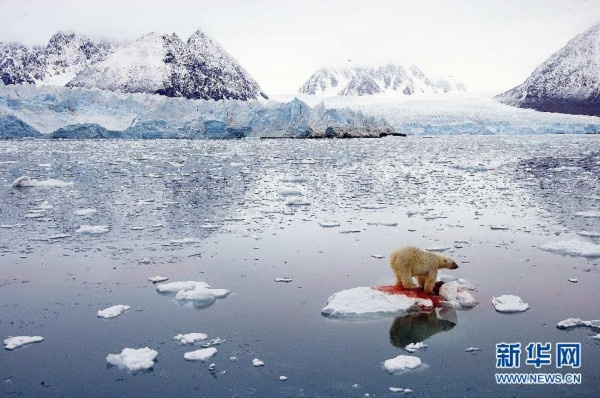China vital in global fight against climate change
- By Gong Yingchun
 0 Comment(s)
0 Comment(s) Print
Print E-mail China.org.cn, November 20, 2015
E-mail China.org.cn, November 20, 2015
 |
|
A recent "Emissions Gap" report by the United Nations Environment Program (UNEP) concluded that the INDCs of nearly 150 nations submitting to the UNFCCC would only yield half of the emissions cuts needed to achieve the goal of keeping the temperature rise under two degrees Celsius by the end of this century. [File photo]? |
China's contribution to the global fight against climate change is obviously "important," and the country may have "underestimated how important it is," Michael Grubb, professor of International Energy and Climate Change Policy at the Institute for Sustainable Resources, University College London (UCL), told China.org.cn.
China submitted its Intended Nationally Determined Contribution (INDC) to the United Nations Framework Convention on Climate Change (UNFCCC) in?June, under which it will cut carbon dioxide emissions per unit of GDP by 60 to 65 percent from 2005 level by 2030, and aim to increase the share of non-fossil fuels in its primary energy consumption to 20 percent by the same date.
Professor Grubb highlighted China's substantial progress by pointing out it has become the biggest investor in renewable energy and is improving its energy efficiency rapidly.
China's endeavor is "changing the way the world looks at it," he said, becoming "one of the progressive countries that is really starting now to try to solve the issue of climate change."
China announced during President Xi Jinping's U.S. visit in September that it will set up a nationwide carbon trading system by 2017 to show its determination to address climate change through the market mechanism.
China's emissions trading scheme is very important, said the British expert, but the process will be complicated. "It would be impossible to get it all right at first and it needs to evolve," he said, cautioning that the emissions trading system is merely an instrument designed to support cleaner technologies and energy structural change, rather than simply giving emission permits to existing industry.
'Optimistic' about the Paris conference
A recent "Emissions Gap" report by the United Nations Environment Program (UNEP) concluded that the INDCs of nearly 150 nations submitting to the UNFCCC would only yield half of the emissions cuts needed to achieve the goal of keeping the temperature rise under two degrees Celsius by the end of this century, raising uncertainties for success of the Paris Climate Change Conference, also known as the COP21, which will be held from Nov. 30 to Dec. 11.
Professor Grubb believes countries will have to be more ambitious and try their utmost to overachieve based on their presented plans.
He agreed on the opinion that the submission of INDCs has provided the Paris conference with a good foundation, as this is the first time "we have a full global picture," which was "a substantial step forward for a Paris agreement."
Another contentious issue which has been debated between developing and developed countries over the past few years is the Green Climate Fund (GCF). It was formally established at the Cancun meeting in 2010 after being initiated during the previous year at the Copenhagen conference, where developed countries agreed to mobilize US$100 billion annually by 2020 to help developing countries reduce emissions and adapt to the impact of climate change.
However, the required amount of funding was not available for quite a long period. Now, the developed countries are halfway towards the 2020 deadline, and must speed up the mobilization of finance in order to fulfill their pledge.
"Many countries do fully agree with the GCF," Professor Grubb said, noting that the US$100 billion goal would be a mix of money from the public purse and other forms of investment, "a lot of which will be private money."?
According to a statement on its official website, the Green Climate Fund has raised the equivalent of US$10.2 billion in pledges from 38 countries as of Nov. 2015. Despite a significant gap, "that's a significant success of the negotiations," the British academic said, adding that the financing is rather important but it won't lead to the break-up of the Paris conference even if it falls short of target.
Professor Grubb expressed his optimism about the Paris conference, saying: "We will reach a deal, but it will be an agreement you can either criticize or call it good progress, as it won't be enough, but a really important step."





